In the rapidly evolving landscape of technology, Artificial Intelligence (AI) is at the forefront of innovation, reshaping industries and enhancing productivity. Among the myriad of AI applications, AI systems and data mining stand out as transformative forces. Microsoft Copilot, a cutting-edge AI tool, exemplifies how these technologies converge to streamline workflows and empower users. This article delves into the latest trends, solutions, and industry applications of AI systems, data mining, and the role of Microsoft Copilot in this dynamic ecosystem.
.
**The Rise of AI Systems: A New Era of Automation**
AI systems have become integral to modern business operations. These sophisticated technologies leverage algorithms and machine learning to automate tasks, analyze data, and generate insights. Companies across various sectors are adopting AI systems to enhance efficiency, reduce costs, and improve decision-making processes. According to a report by McKinsey, organizations that integrate AI into their operations can increase productivity by up to 40%.
.
The versatility of AI systems allows them to be tailored to specific industry needs. For instance, in healthcare, AI systems are utilized for predictive analytics, enabling providers to anticipate patient needs and optimize resource allocation. In finance, AI algorithms analyze market trends and customer behavior, facilitating more accurate forecasting and risk management. As businesses continue to recognize the potential of AI systems, the demand for skilled professionals in data science and machine learning is surging.
.
**Data Mining: Uncovering Hidden Insights**
Data mining is a critical component of AI systems, enabling organizations to extract valuable insights from vast amounts of data. This process involves analyzing data sets to identify patterns, correlations, and trends that can inform strategic decisions. With the exponential growth of data generated daily, the ability to mine and analyze this information has become a competitive advantage for businesses.
.
The implementation of data mining techniques can lead to significant improvements in customer relationship management (CRM). By analyzing customer data, businesses can tailor their marketing efforts, improve customer service, and enhance product offerings. For example, retail giants like Amazon utilize data mining to recommend products based on user behavior, resulting in increased sales and customer satisfaction.
.
Moreover, data mining is instrumental in risk management across various industries. Financial institutions employ data mining to detect fraudulent activities by analyzing transaction patterns and identifying anomalies. Similarly, in manufacturing, data mining helps predict equipment failures, allowing companies to implement preventive maintenance strategies and reduce downtime.
.
**Microsoft Copilot: Empowering Users with AI**
Microsoft Copilot is a groundbreaking AI tool that integrates seamlessly into Microsoft 365 applications, enhancing productivity and collaboration. By leveraging AI systems and data mining, Copilot acts as a virtual assistant, providing users with intelligent suggestions and automating repetitive tasks. This innovative tool is designed to empower users, enabling them to focus on higher-value activities while Copilot handles mundane tasks.
.
One of the standout features of Microsoft Copilot is its ability to analyze user data and generate personalized insights. For instance, in Microsoft Word, Copilot can assist users in drafting documents by suggesting relevant content based on previous work and current trends. In Excel, it can analyze data sets and create visualizations, making it easier for users to interpret complex information.
.
The integration of Microsoft Copilot into everyday workflows has the potential to revolutionize how teams collaborate. By streamlining communication and automating administrative tasks, Copilot fosters a more efficient work environment. According to a study by Forrester, organizations that adopt AI-powered tools like Microsoft Copilot can see productivity gains of up to 50%.
.
**Trends and Solutions in AI Systems and Data Mining**
As AI systems and data mining continue to evolve, several trends are shaping their future. One notable trend is the increasing emphasis on ethical AI. Organizations are recognizing the importance of transparency and accountability in AI decision-making processes. This shift is driving the development of frameworks and guidelines to ensure that AI systems are used responsibly and ethically.
.
Another significant trend is the rise of low-code and no-code platforms that enable users to build AI applications without extensive programming knowledge. These platforms democratize access to AI technologies, allowing non-technical users to leverage AI systems for their specific needs. Microsoft Copilot exemplifies this trend by making powerful AI capabilities accessible to all users within the Microsoft ecosystem.
.
Furthermore, the integration of AI with other emerging technologies, such as the Internet of Things (IoT) and blockchain, is creating new opportunities for innovation. For instance, AI systems can analyze data generated by IoT devices to optimize operations in real-time. In supply chain management, AI-powered data mining can enhance visibility and traceability, improving overall efficiency.
.
**Industry Applications: Transforming Business Operations**
The applications of AI systems and data mining are vast and varied, impacting numerous industries. In healthcare, AI-driven data mining is being used to analyze patient records, predict disease outbreaks, and personalize treatment plans. Hospitals are leveraging AI systems to optimize scheduling, reduce wait times, and improve patient outcomes.
.
In the retail sector, AI systems are transforming inventory management and customer engagement. By analyzing purchasing patterns, retailers can optimize stock levels and tailor marketing campaigns to specific customer segments. Additionally, AI-powered chatbots are enhancing customer service by providing instant support and personalized recommendations.
.
The manufacturing industry is also reaping the benefits of AI systems and data mining. Predictive maintenance powered by AI helps manufacturers anticipate equipment failures, reducing downtime and maintenance costs. Data mining techniques are used to analyze production processes, identify inefficiencies, and optimize supply chain operations.
.
**Technical Insights: The Future of AI Systems**
The future of AI systems and data mining is bright, with continuous advancements in technology paving the way for more sophisticated applications. Machine learning algorithms are becoming increasingly adept at processing unstructured data, such as images and text, enabling organizations to extract insights from diverse data sources.
.
Natural Language Processing (NLP) is another area of growth, allowing AI systems to understand and generate human language. This capability enhances the functionality of tools like Microsoft Copilot, enabling users to interact with AI in a more intuitive manner. As NLP technology improves, we can expect AI systems to become even more integrated into daily workflows.
.
Moreover, the development of explainable AI (XAI) is gaining traction. As organizations rely more on AI systems for critical decision-making, the need for transparency and interpretability becomes paramount. XAI aims to provide insights into how AI models arrive at their conclusions, fostering trust and accountability.
.
**Conclusion: Embracing the AI Revolution**
The convergence of AI systems, data mining, and tools like Microsoft Copilot is revolutionizing the way businesses operate. By harnessing the power of AI, organizations can unlock new levels of productivity, enhance decision-making, and drive innovation. As we move forward, embracing these technologies will be crucial for staying competitive in an increasingly digital world.
.
In conclusion, the integration of AI systems and data mining is not just a trend; it is a fundamental shift in how we approach work and problem-solving. Microsoft Copilot serves as a prime example of how AI can empower users, streamline processes, and foster collaboration. As we continue to explore the potential of AI, the future promises exciting possibilities for businesses and individuals alike.
**Sources:**
1. McKinsey & Company. (2021). “The State of AI in 2021.”
2. Forrester Research. (2022). “The Total Economic Impact of Microsoft 365 Copilot.”
3. Gartner. (2023). “Top Strategic Technology Trends for 2023.”
4. Deloitte Insights. (2022). “AI and the Future of Work.”































